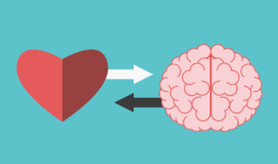|
As defined by Mayer and Salovey in 1997, emotional intelligence consists in four different skills related to both oneself and others:
Summarizing the findings of 162 studies from 27 different countries, a recent meta-analysis found a “positive correlation between overall emotional intelligence and academic performance.” Arguably, the effect size (.20) was only moderate. However, it was slightly higher (.24) when looking at objective rather subjective (based on self-ratings) measures of emotional intelligence. Likewise, the influence of emotional intelligence on academic performance (measured through both classroom grades and externally assessed standardized tests) was higher for primary and secondary (.30) than for tertiary students. The effect was also more noticeable in literary (.38) than in scientific subjects (.21). Gender, to the contrary, was not a mediating factor. Regarding the four branches of emotional intelligence, their respective influences were as follows:
According to the researchers, three different reasons might explain why higher emotional intelligence is associated with better academic performance:
All in all, the study concludes that “emotional intelligence is among the three most important predictors of academic performance,” accounting for about 10% of a student level of achievement, while intelligence (as measured by IQ) and conscientiousness account for 70% and 20% respectively. Reference: McCann, JIang, Brown, “Emotional intelligence predicts academic performance: a meta-analysis”, APA Psychological Bulletin, 2019.
0 Comments
Your comment will be posted after it is approved.
Leave a Reply. |
|
Proudly powered by Weebly

